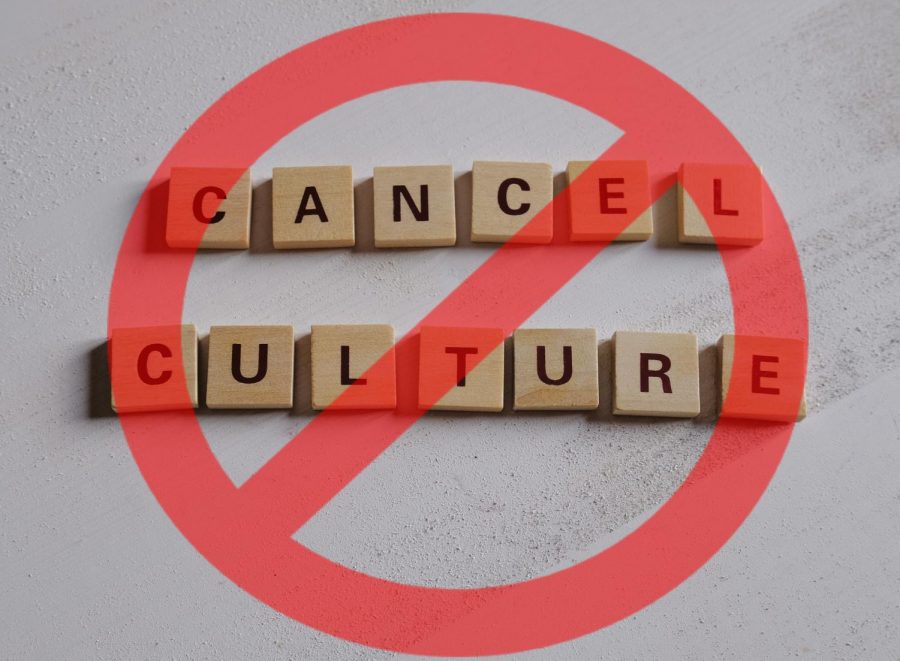It’s Time to Cancel Cancel Culture
Cancel culture often becomes toxic and dissolves into cyberbullying instead of productive conversation.
May 18, 2021
Canceling Mr. Potato Head became a huge uproar in the U.S in March. When I first heard about it I thought, “Why are people trying to cancel a children’s toy?”. Some suggested making the toy gender-neutral to promote gender equality.
As I read more about the dispute, I was starting to get confused. There is already a Mr. Potato Head and Mrs. Potato Head so no gender is being discriminated against. I was utterly shocked and a little annoyed that a children’s toy was causing this much controversy.
The term cancel culture became very popular in 2020. Cancel culture is withdrawing support for public figures, companies, or objects if they have committed offensive behavior, or if something does not fit today’s social norms. Examples of public figures who have been canceled include J.K. Rowling, Shane Dawson, Jeffree Star, Ellen DeGeneres, and even the young, former dancer from “Dance Moms,” Kendall Vertes.
In 2020, we also saw the children’s show character Chase from “Paw Patrol” canceled because he is portrayed as a “good cop.” As silly as it sounds, yes, a cute cartoon puppy was canceled because he played the part of a “good cop.” However, Chase’s character is a necessity for teaching our younger generations how cops should treat others. By creating “good cop” narratives for children to look up to and learn from, we can help change and improve police abusing their power
In today’s society, we have a serious issue with police brutality. We have witnessed people of all ages have their life taken from a cop abusing their power. The show’s Twitter account posted a tweet on June 2, 2020 stating they want to amplify Black voices, so they muted their show until June 7. Commenters replied to the tweet with statements like, “euthanize the police dog”, “maybe it’s time to put you down” and “defund Paw Patrol.” Comments like these are only creating more tension and division.
These are examples of a toxic cancel culture.
Aunt Jemima’s image was recently removed from syrup and pancake packages because it was a racist narrative of a Black woman coming from slavery. The image of Aunt Jemima was based on how white Americans portrayed people of color in the past. Clearly, this was offensive to communities around the U.S.
However, Aunt Jemima’s family expressed concern about removing her image. Vera Harris is a woman who is related to Lillian Richard who promoted the Quaker Oats Brand and Aunt Jemima’s image for two decades. Harris told sources that she does not want her legacy lost because if her image is removed it will seem as if she never was a person. Removing the image of Aunt Jemima cannot erase the racist past that created it, it is erasing the woman herself. Instead of canceling and eliminating Harris’s image forever, Quaker Oats can work to redesign her image so it isn’t offensive but still preserving her name.
Cancelling Aunt Jemima paired with canceling Uncle Ben, on rice boxes, as well. The racist rhetoric that these brands promoted was abhorrent, but trying to rewrite history is no better. If we start eliminating all people of color from food packages because they are offensive, there will be no diversity. Brands need to work to redesign their images to promote diversity, success and equality. They need to face their history, not erase it.
Paw Patrol and Aunt Jemima were canceled because people were thinking with their emotions instead of using facts along with emotion. Aunt Jemima’s image is an example of racism, yes. But the woman who worked as Aunt Jemima also saw herself as a symbol of diversity and personal success in America. We have a huge police brutality problem in America, but Paw Patrol is teaching younger generations how to treat others. Using facts along with emotions when canceling something also applies when canceling public figures.
Vertes was canceled because of her political opinion. People on TikTok found that Vertes is Republican and supported Trump. Her comment section on TikTok was flooded with hateful comments like taking harsh digs at her physical appearance, harassment, cyberbullying, and she even said she was receiving death threats. As someone who does not share the same opinions and beliefs as Vertes, I can say reading the comment sections on her videos was still sad and disappointing.
Growing up, we are taught by our parents and teachers to always be kind to others. We are also taught to treat others the way we would like to be treated. As students, our teachers would preach the message “think before you post.” In the U.S., we have the right to freedom of speech and the privilege to have our own opinions.
There is a part of cancel culture that is extremely toxic. Cancel culture involves tearing one another down and creating a negative atmosphere– which is all too easy on social media. Cyberbullying is not the answer to responding to someone with a different opinion than you.
It is time for people to start treating others with kindness and respect. If people genuinely want others with different opinions and beliefs to respect one another and create less of a divide, cyberbullying and harassment have to stop. People have to start using facts before canceling something or someone. As a community, before canceling an object or person, we need to genuinely think about if it will benefit the public and our well-being. Cancel culture has become toxic and unhealthy, and I think it is time to cancel the culture.







